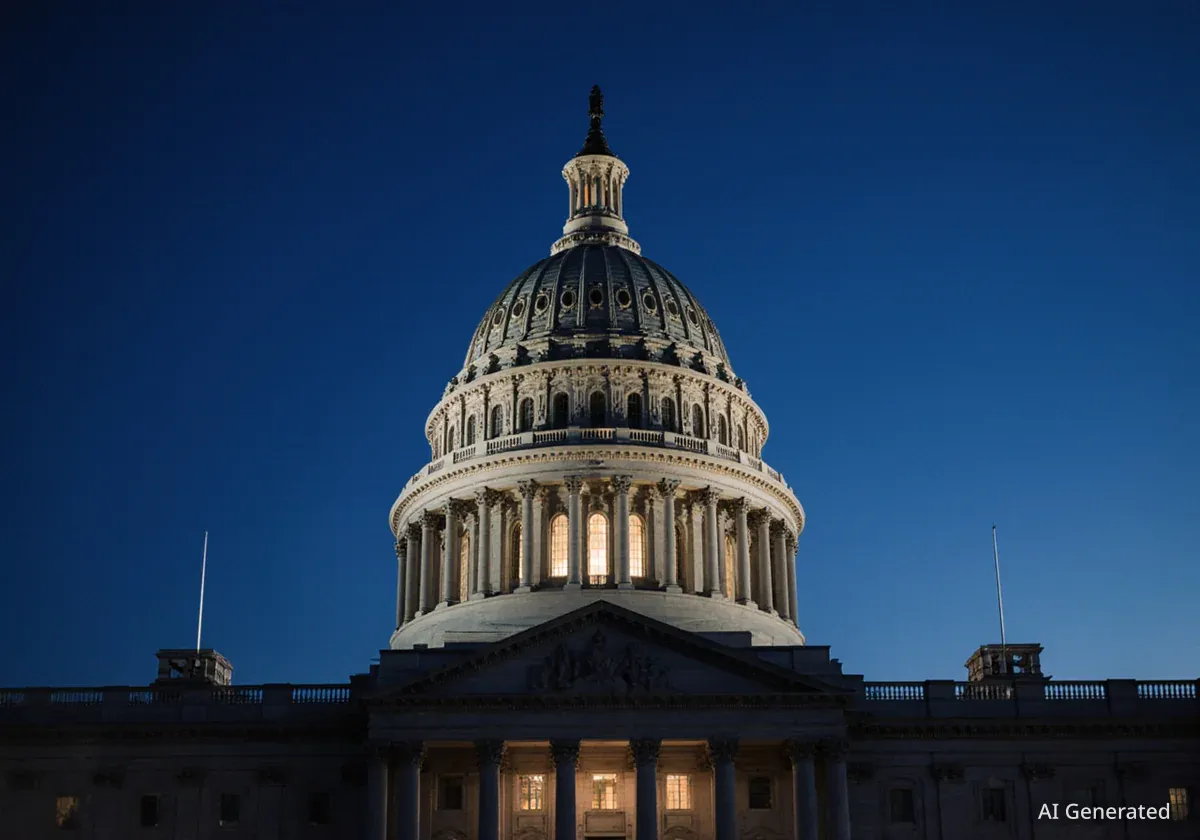The U.S. Department of Health and Human Services (HHS) has formally recommended that Harvard University be considered for suspension and debarment, a procedure that could prevent the institution from receiving any federal funding or government contracts. The action, announced Monday by the department's Office for Civil Rights (OCR), escalates a dispute over federal grants with the Ivy League university.
Key Takeaways
- The HHS Office for Civil Rights has referred Harvard University for suspension and debarment proceedings.
- If approved, this action would make Harvard ineligible to receive funds or contracts from any U.S. government agency.
- The recommendation comes just over a week after a court order restored $46 million in previously suspended National Institutes of Health (NIH) grants to Harvard.
- Officials cited the need to protect taxpayer money and the public interest as the basis for the referral.
Federal Government Moves to Restrict Funding
The Department of Health and Human Services took a significant step on Monday by initiating a process that could have major financial consequences for Harvard University. The department’s Office for Civil Rights referred the university for administrative suspension and debarment.
This formal procedure, if successful, would exclude Harvard from entering into contracts with any federal agency. More critically, it would block the university from receiving new federal grants, which support a substantial portion of its research activities.
In a statement, Paula M. Stannard, the director of the HHS Office for Civil Rights, explained the department's position. She stated that the action was taken to protect both public funds and the broader national interest.
"OCR’s referral of Harvard for formal administrative proceedings reflects OCR’s commitment to safeguard both taxpayer investments and the broader public interest," Stannard said.
Understanding Suspension and Debarment
Suspension and debarment are serious administrative actions used by the federal government to ensure it only conducts business with responsible entities. A suspension is a temporary measure, while debarment is a more permanent exclusion, often lasting for a set number of years.
These measures are not considered punishments but are protective actions. They are implemented to protect the government from risks such as fraud, poor performance, or non-compliance with laws and regulations. A debarment by one federal agency generally applies to all agencies across the government.
Financial Impact at a Glance
Universities like Harvard rely heavily on federal funding for scientific and medical research. According to public data, Harvard University consistently receives hundreds of millions of dollars in federal research grants each year, with a significant portion coming from HHS agencies like the National Institutes of Health (NIH).
A Reversal Following a Legal Victory for Harvard
The timing of the HHS announcement is notable. It comes shortly after Harvard secured a legal win regarding a separate funding issue. Earlier this month, a district court judge ruled that a previous decision by the Trump administration to suspend federal funding to the university was illegal.
As a result of that ruling, approximately $46 million in federal grants from the National Institutes of Health, which had been frozen, began to be released to the university. The NIH is a key agency operating under the umbrella of HHS.
The new referral for debarment appears to be a separate and more comprehensive administrative action, distinct from the specific grant suspension that was overturned in court. While the previous issue involved funds from one agency, the current proceedings could affect Harvard's relationship with the entire federal government.
The Role of the Office for Civil Rights
The HHS Office for Civil Rights (OCR) is responsible for enforcing federal civil rights laws and health information privacy laws in programs and activities that receive HHS funding. The office investigates complaints and conducts compliance reviews to ensure that institutions receiving federal money adhere to all applicable regulations. A referral for debarment is one of the most severe enforcement tools at its disposal.
Potential Consequences for Research and Operations
A complete ban on federal funding would represent a significant blow to Harvard's research enterprise. Federal grants are the lifeblood of academic research in the United States, supporting everything from laboratory equipment and materials to the salaries of researchers, postdoctoral fellows, and graduate students.
Major research initiatives in medicine, public health, engineering, and the sciences could face immediate and long-term disruption. The inability to compete for federal grants would also affect the university's ability to attract and retain top-tier faculty and researchers who depend on such funding to advance their work.
Next Steps in the Process
The referral by the OCR is the first step in a formal administrative process. Harvard University will have the opportunity to respond to the allegations and present its case. The proceedings will be handled by a designated suspending and debarring official within the government.
The process typically includes:
- A formal notice sent to the institution outlining the reasons for the proposed action.
- An opportunity for the institution to submit information and arguments in opposition.
- A review of all evidence by the debarring official.
- A final decision on whether to impose a suspension or debarment.
The outcome of these proceedings will be closely watched by the higher education community, as it could set a precedent for how the federal government engages with academic institutions on matters of compliance and funding eligibility.





